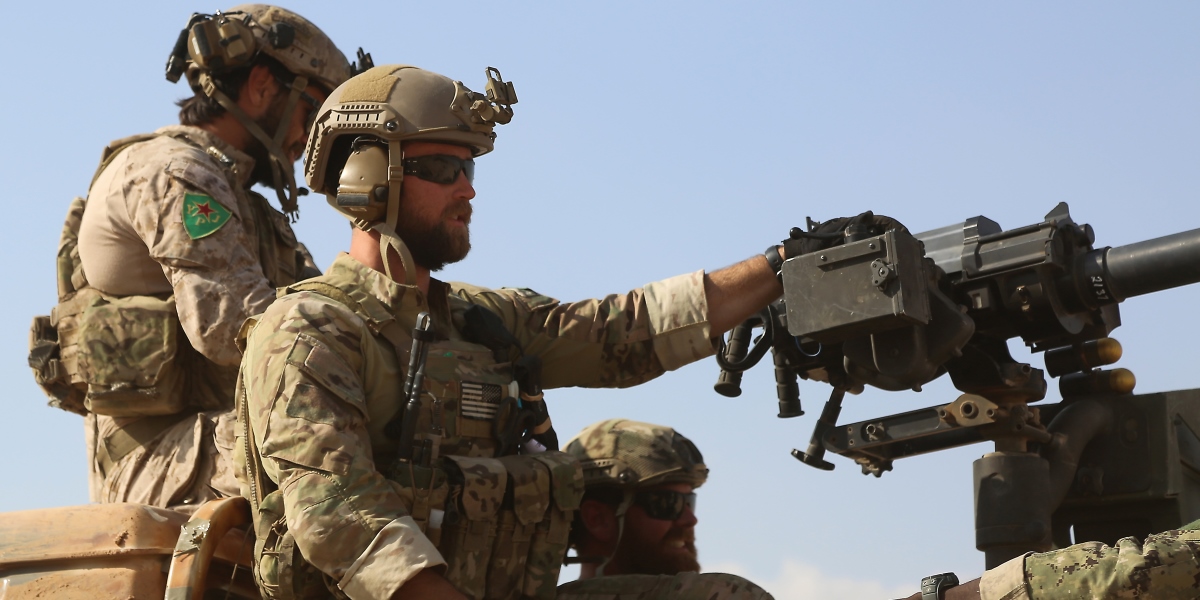
US war games take Middle East from volatile to brink of war
In retrospect, this neo-medieval order did not emerge by happenstance or as a result of sporadic developments, but as a result of a deliberate, flexible and long-term regional transformation strategy conducted by the U.S. and its interlocutors.
Share
These have been tough times for both the political actors and societies in the Middle East as well as the wider Muslim world who are following the critical developments unfolding daily with increasing anxiety. In recent months, the intensity, scope and frequency of successive political, geostrategic or ethno-sectarian crises in the region have rapidly escalated. The neo-medieval order associated with competing claims to national sovereignty and regional dominance have sparked civil wars, ethnic-sectarian radicalization, weakening regional norms, the use and abuse of paramilitary or terrorist groups and throne wars, creating constantly worsening security.
In retrospect, this neo-medieval order did not emerge by happenstance or as a result of sporadic developments, but as a result of a deliberate, flexible and long-term regional transformation strategy conducted by the U.S. and its interlocutors. The chain of destructive developments, which started with the U.S. invasion of Iraq under the veil of liberation from autocratic leaders such as Saddam Hussain in 2003, have continued unabated to this day, leaving only carnage and specters of regional war behind. Starting in Iraq, sensitive balances between competing political, social, ethnic and sectarian groups were destroyed; existing security and governance infrastructures were deliberately weakened; national leaders with anti-Western rhetoric were eliminated; paramilitary terrorist groups were secretly supported; and the groundwork for perpetual conflict was laid across the region.
While Iran was the main regional player in the list of foremost targets of former U.S. President George W. Bush's administration via his rhetoric on the "axis of evil," the conduct of the regional transformation strategy experienced a radical turn after former U.S. President Barack Obama. The process of regime change across the region was not supported in an open and pronounced fashion, but various social movements and domestic opposition groups, especially in Sunni countries in the region, were manipulated over the course of the Arab Spring.
Consequently, the Arab Spring, which started with legitimate social demands, was turned into an apparatus for the controlled political elite's transformation in Tunisia and Egypt while Syria, Iraq, Libya and Yemen were left behind as failed states. Turkey also experienced various illicit attempts to topple President Recep Tayyip Erdoğan, including the Gezi Protests, the Dec. 17 to Dec. 25 operations and the July 15 coup attempt, all with tacit American support.
The Syrian war became a critical turning point. One where Washington did not hesitate to leave some of its strongest regional allies, including Turkey and Saudi Arabia, in the cold for not shouldering the material and human cost of fighting on behalf of the U.S. there. Part of the U.S.'s response was opening new areas of influence for Iran, which included Iraq, over the course of its political reconfiguration, Lebanon through Hezbollah and northern Syria. The expansion of Iran's regional influence was a provocative move that predictably aroused reactions from Saudi Arabia and other Gulf countries, which gave the U.S. a perfect pretext to systematically raise tensions on the Sunni-Shiite axis among the main players and position itself as the main arbitrator. President Donald Trump started to play war games in a blunter and more unreserved fashion with the help of his son-in-law Jared Kushner and Pentagon, perfectly aware that an escalation of risk with the help of his son-in-law Jared Kushner and Pentagon, perfectly aware that an escalation of risk perceptions in the region would play into the hands of perceptions in the region that would play into the hands of the military-industrial complex through increased arms sales, as well as consolidation of the interests of the U.S.-Israeli alliance.
Against this background, I believe that we need to take stock of the catalog of recent crises in the region, including the Qatari crisis to the Kurdistan Regional Government's (KRG) independence referendum, the resignation of Lebanese Prime Minister Saad Hariri, the failed missile attack on Riyadh and the clampdown on several princes, prominent businessmen and bureaucrats in Saudi Arabia in light of the larger hegemonic projects focused on the Middle East. It is extremely worrying for the people and intellectuals from Istanbul, Cairo, Baghdad, Doha and Medina to watch Middle Eastern politics continue to be rapidly engulfed in escalating tensions, overnight operations and tit-for-tat warmongering rhetoric among the main regional players. Obviously, when Saudi Arabia, as the main anchor of the regional subsystem around the Gulf and spiritually the custodian of the two holy mosques, is drawn into domestic power struggles, as seen this week, the level of anxiety in the region and the wider Muslim world tends to spike.
Regardless of the underlying motivations and national interest calculations, we need to underline that an all-out war between major regional players that the U.S. caters to will trigger a lose-lose scenario for all sides. Lebanon seems to be the next potential stage for aggravated proxy conflicts, but past experience shows us that continued instability and conflict in Lebanon produces region-wide ramifications. Western strategies for instigating regime change, fragmenting existing sovereign authorities, creating political power vacuums and using sub-national actors and terrorist groups for manipulation must be resisted through regional solidarity.
[Daily Sabah, 10 November 2017]
Tags »
Related Articles





